HKUST(GZ) Hosted a High-level Interdisciplinary Symposium on Sino-French Collaboration in Paris
On February 5th, Paris time, The Hong Kong University of Science and Technology (Guangzhou) co-hosted a high-level interdisciplinary symposium on Sino-French collaboration, in collaboration with the Association des Scientifiques et des Ingénieurs Chinois en France (ASICEF). The event also included the HKUST(GZ) Global Talent Dialogue.
Following the roundtable on building a research university ecosystem held in Brussels on January 25th, this symposium marks another significant academic event during The Hong Kong University of Science and Technology (Guangzhou)'s visit to Belgium, Germany, Switzerland, and France.
Professor Lionel M. NI, President of The Hong Kong University of Science and Technology (Guangzhou), Ms. Li DING, Chairwoman of the Association des Scientifiques et des Ingénieurs Chinois en France (ASICEF), and Minister Counsellor Li CHEN from the Embassy of the People's Republic of China in the Republic of France delivered their speeches. More than ten top experts from China and France, including Professor Christian AMATORE, a foreign academician of the Chinese Academy of Sciences, Professor Minhui LI, Head of the "Materials, Interfaces, and Soft Matter" group at the Paris Chemistry Research Institute of Chimie ParisTech, Professor Lei CHEN, Dean of the Information Hub at HKUST(GZ), and Professor Ricky Shi-Wei LEE, Dean of the Systems Hub, shared their insightful perspectives through keynote presentations and roundtable discussions. Nearly a hundred outstanding scholars, industry leaders, and young talents from both China and France participated in the offline and online activities.
Professor Yang YANG, Associate Vice-President (Teaching & Learning) of The Hong Kong University of Science and Technology (Guangzhou), Mr. Xianding MA, Vice Chairman of the Association des Scientifiques et des Ingénieurs Chinois en France (ASICEF), and Mr. Wenchao ZHANG, Deputy Head of the Talent Services Department at HKUST(GZ), respectively hosted relevant segments of the event. Mr. Xiaolin GUO, Minister Counsellor of the Science and Technology Department at the Embassy of the People's Republic of China in the Republic of France, Ms. Ying ZHU, First Secretary of the Science and Technology Department, Mr. Zhengshun QIAO, First Secretary of the Education Department, and Mr. Jing FU, Head of the Global Affairs Department at HKUST(GZ), participated in the symposium.
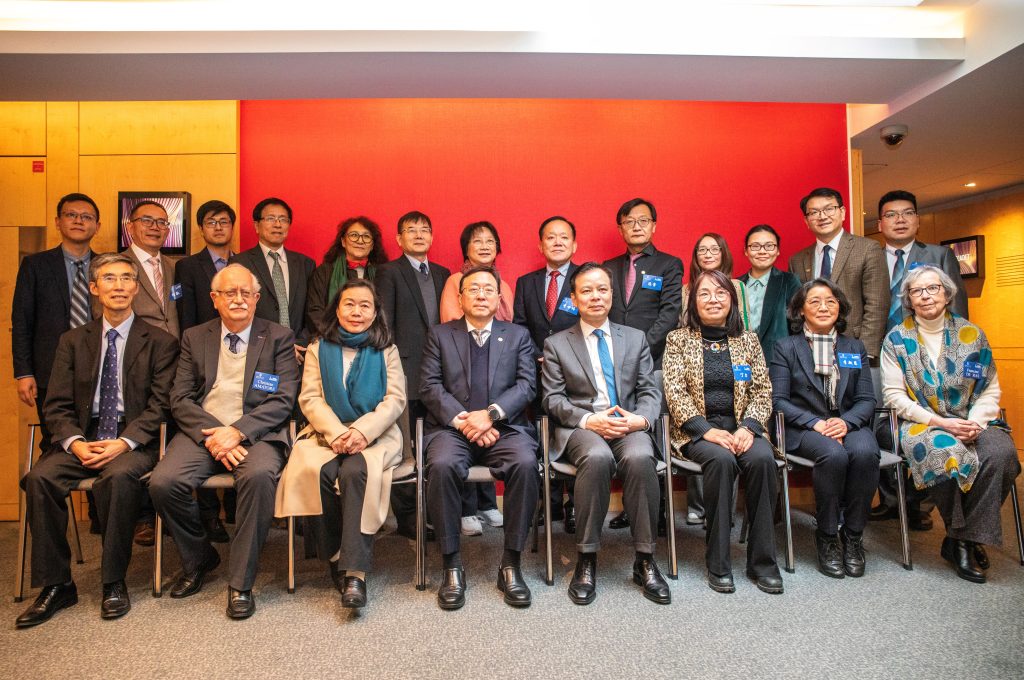
President Lionel M. NI mentioned in his speech that this year marks the 60th anniversary of the establishment of diplomatic relations between China and France. In this milestone year, universities and partners from both countries have the responsibility to deepen cultural exchanges and contribute to the well-being of more people. He stated that integrating interdisciplinary education can transform the paradigms of knowledge creation and student development, effectively enhancing students' ability to provide solutions to global challenges. With the primary goal of nurturing students who can address real-world problems globally, The Hong Kong University of Science and Technology (Guangzhou) is at the forefront of interdisciplinary educational practices. However, to better leverage interdisciplinary advantages in education, research, and knowledge transfer, mutual learning and exchange are still needed. China and France should strengthen communication and collaboration in this field.

Chairwoman Li DING, in her speech, reflected on the fact that educational and technological exchanges and cooperation have always been an integral part of the exchanges between China and France during the 60 years of diplomatic relations. The Association des Scientifiques et des Ingénieurs Chinois en France (ASICEF) hopes to join hands with both parties to host this event, creating a communication bridge among global scientific and technological professionals for The Hong Kong University of Science and Technology (Guangzhou), and further exploring broader opportunities for international collaboration. This event will also serve as a new starting point for everyone to exchange ideas and foster collaboration.

Minister Counsellor Li CHEN expressed in his speech that science knows no borders, and innovation knows no limits. Technological innovation is an important engine for the development of human society and a crucial means to address global challenges. In this regard, China and France have always been at the forefront of education, scientific and technological exchanges, and cooperation between the East and the West, which is increasingly close. It is hoped that experts and scholars in the education and scientific communities of China and France can collide thoughts and inspire each other during the symposium, reflecting on the achievements of development and envisioning the prospects of cooperation on the occasion of the 60th anniversary of the establishment of diplomatic relations between China and France.

In today's world, whether it is solving complex global issues or advancing breakthroughs in science and technology, interdisciplinary integration is widely recognized as a developmental direction. Therefore, many educators from China and France have been at the forefront of leading global trends, innovating educational concepts and methods, and addressing pressing human challenges by integrating knowledge from different fields. During the keynote session, Professor Christian AMATORE, a foreign academician of the Chinese Academy of Sciences, emphasized that science should not be confined by national boundaries. He emphasized that science is essentially a bond shared by all civilizations, much like the Silk Road connecting various regions. He expressed his delight in seeing so many young people gathered here, passionate about scientific research from different countries. He highlighted his latest scientific research achievements in the fields of molecular chemistry and biology, collaborating with Chinese teams, and expressed his strong agreement with the interdisciplinary concept of HKUST(GZ). He believes that collaboration among researchers from different disciplinary backgrounds is crucial for achieving significant outcomes.
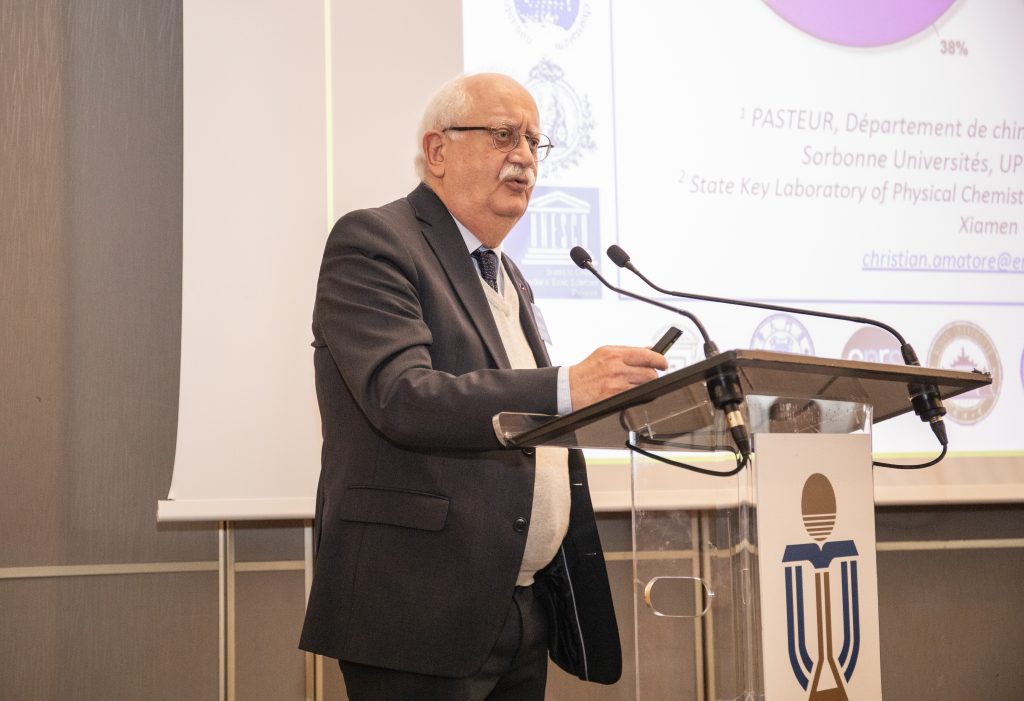
Professor Minhui LI, Head of the "Materials, Interfaces, and Soft Matter" group at the Paris Chemistry Research Institute of Chimie ParisTech, reviewed her deep connection with The Hong Kong University of Science and Technology in her keynote speech. From 2017 to 2021, she collaborated with Prof. Ben Zhong TANG's Research Group at HKUST and received cooperation funding from the French Research Agency and the Hong Kong Research Grants Council, nurturing numerous outstanding graduates with an international perspective. She pointed out that since the establishment of the representative office in Beijing by the French National Center for Scientific Research in 1995, it has become an important bridge for scientific and technological cooperation and exchange between China and France, continuously promoting strategic cooperation between the two countries.

The Hong Kong University of Science and Technology (Guangzhou) is committed to establishing the world's first interdisciplinary university and exploring a new 2.0 model for higher education. Professor Lionel M. NI, the President, delivered a keynote speech titled "The Perspective of Interdisciplinary Education in Higher Education," where he elaborated on the necessity and urgency of HKUST(GZ) as a research-oriented university with a focus on interdisciplinary studies from three perspectives: the global perspective, particularly UNESCO's research on interdisciplinary education in higher education; the current status of interdisciplinary education worldwide; and the demand for future talents. President NI emphasized that the academic development of interdisciplinary studies at HKUST(GZ) will go through three stages: incremental, breakthrough, and iterative. Through interdisciplinary positioning of complex problems, project-based learning to explore educational transformations, and the cultivation of interdisciplinary talents who can break boundaries by incorporating design thinking courses and AI-enabled classrooms, the university aims to produce graduates who are prepared to face future challenges.
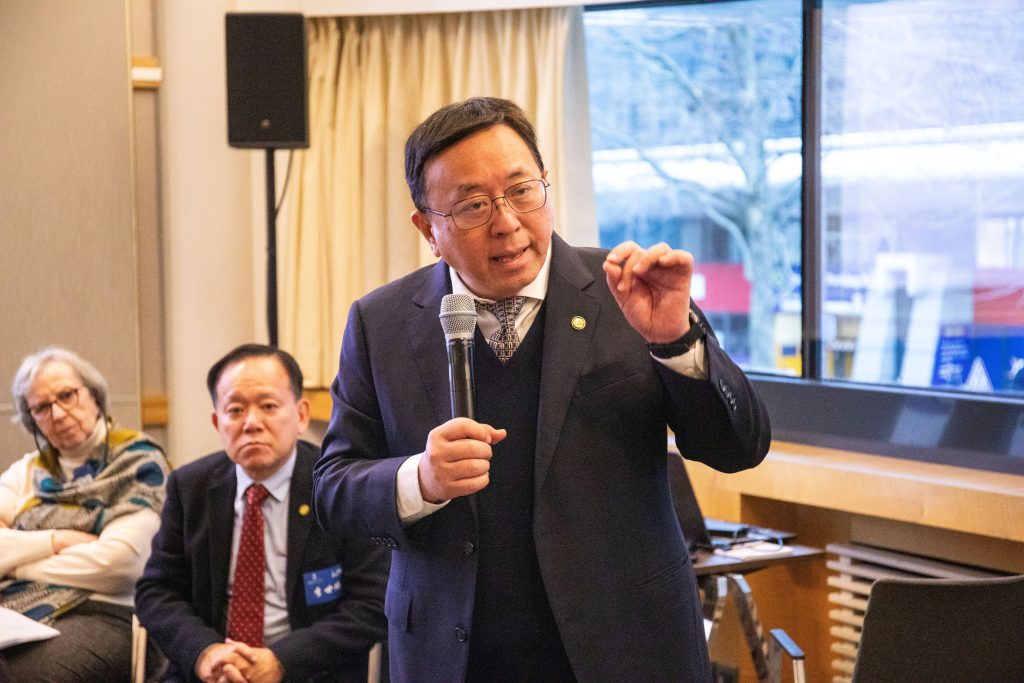
During the roundtable discussion, seven professors from different disciplines and backgrounds expressed their views on the exploration and practice of interdisciplinary studies. Professor Yongmin ZHANG, an academician of the French National Academy of Pharmacy, believed that based on recent years' observations, Nobel Prize laureates with interdisciplinary backgrounds accounted for at least fifty percent, indicating that interdisciplinary studies are undoubtedly the future development trend.
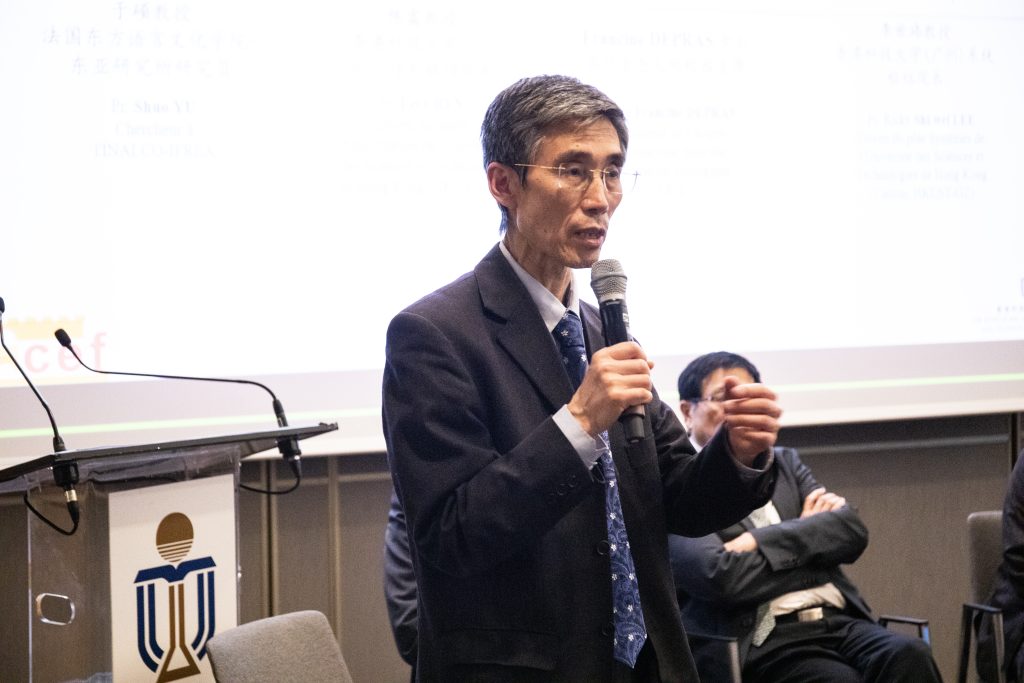
Professor Christian AMATORE pointed out that science itself naturally possesses multidisciplinary characteristics, and scientists should have the freedom to engage in interdisciplinary research. This freedom is crucial for the development of science. He believes that a robust and professional multidisciplinary education system should be established.
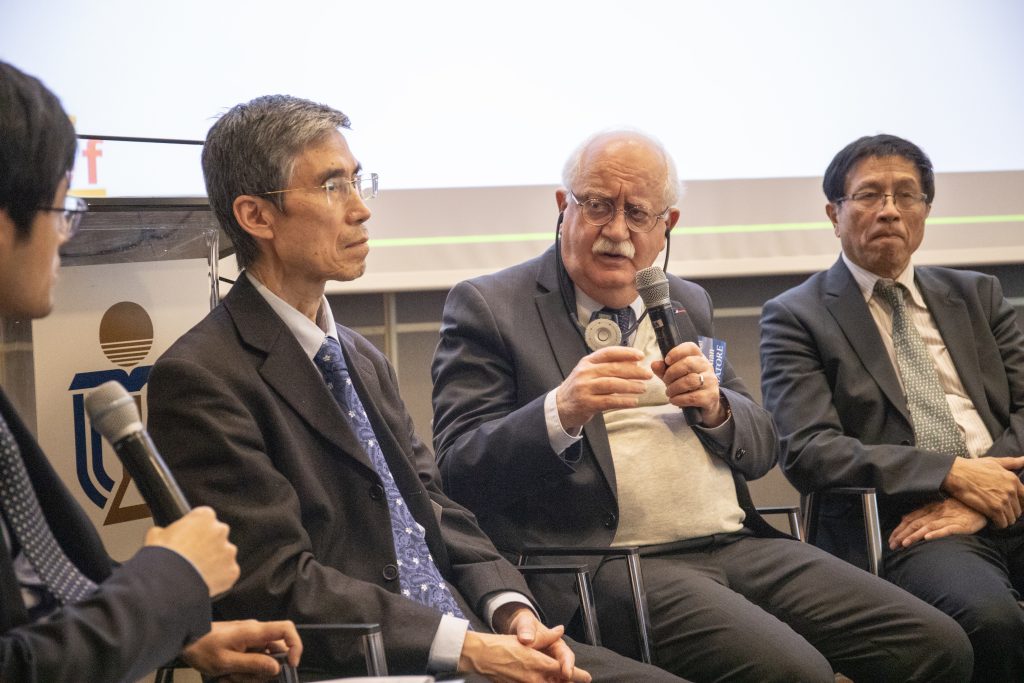
Professor Yong CHEN, a senior researcher at the French National Center for Scientific Research (CNRS), believes that in the practice of interdisciplinary studies, integration goes beyond the mere consolidation of knowledge across disciplines; it also involves compatibility and resonance among diverse thinking and methods. Only by establishing a foundation of mutual respect and understanding among researchers from different professional fields can true synergistic effects of interdisciplinary collaboration be achieved.
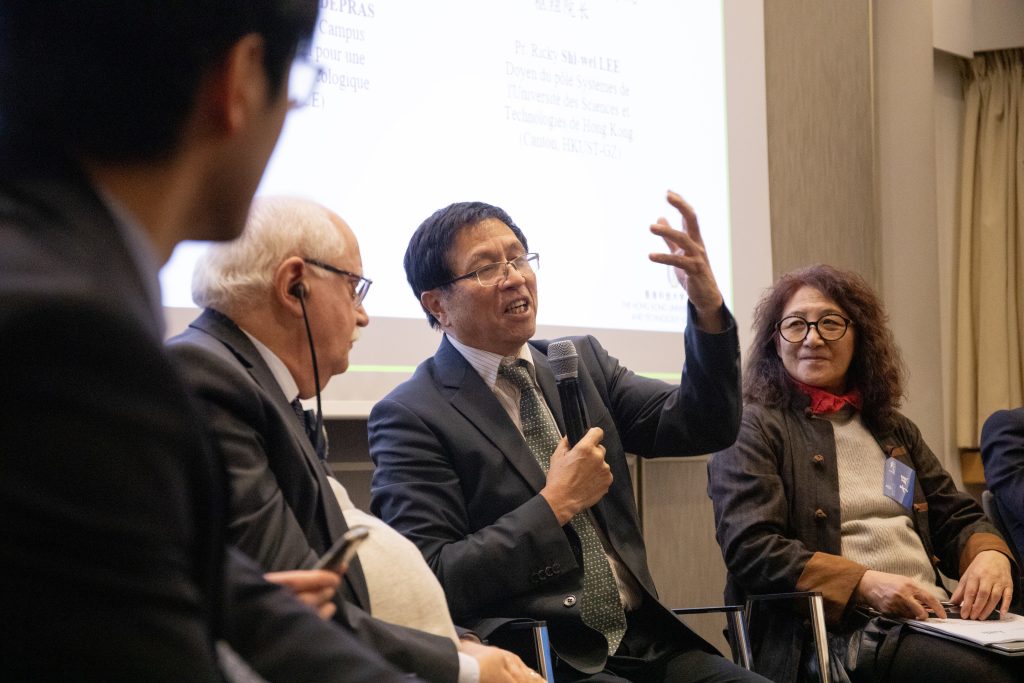
Professor Shuo YU, a researcher at the Institute of East Asian Studies at the National Institute for Oriental Languages and Civilizations in France, was the only guest at the roundtable with a background in humanities. She believes that humanities disciplines also face numerous situations involving interdisciplinary studies. In order to understand the complexity of human culture, researchers need to learn the thinking patterns of different populations with diverse backgrounds.

Professor Lei CHEN, the Dean of the Information Hub at The Hong Kong University of Science and Technology (Guangzhou), mentioned that HKUST(GZ) provides students with a platform to explore opportunities in various fields during their studies and research. In this learning environment, students gradually develop into versatile individuals with a wide range of skills, enabling them to adapt flexibly to the ever-evolving demands of society.
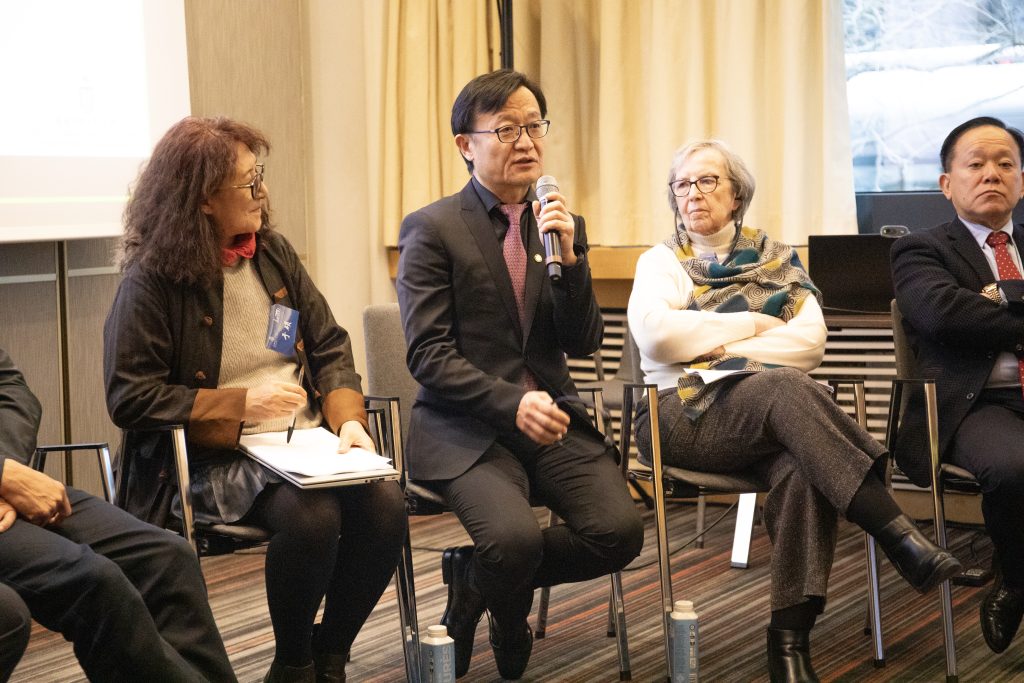
Professor Ricky Shi-Wei LEE, the Dean of the Systems Hub at The Hong Kong University of Science and Technology (Guangzhou), pointed out that the university has adopted an exploratory and integrated learning approach driven by interdisciplinary studies. This innovative approach requires a "break and establish" reform. "Break" refers to the need to break down the barriers that limit knowledge within specific domains, while "establish" refers to the establishment of a new academic evaluation system that embraces more diverse and innovative measures to adapt to the development of this innovative model.
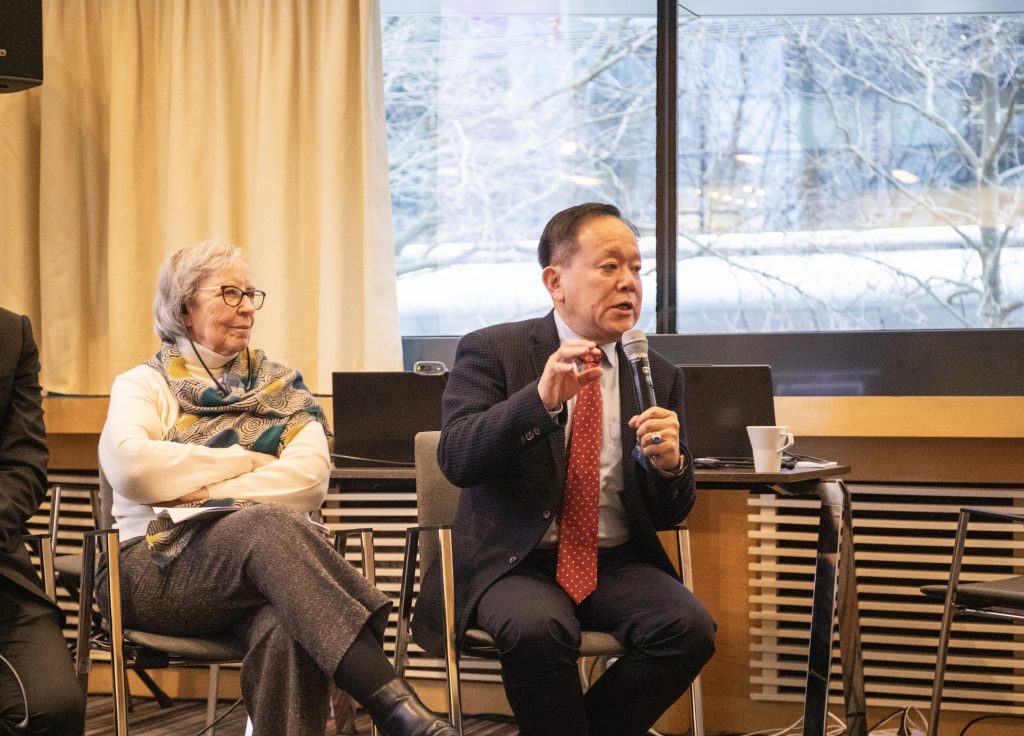
Francine DEPRAS, the Chair of the International Ecological Civilization Campus, also stated that there is an urgent need to cultivate a group of outstanding teachers. In the process of training teachers, it is essential to avoid an isolated approach and instead focus on fostering the concept of interdisciplinary studies. This will ensure that teachers are equipped to guide the growth of young individuals in a more exceptional manner.
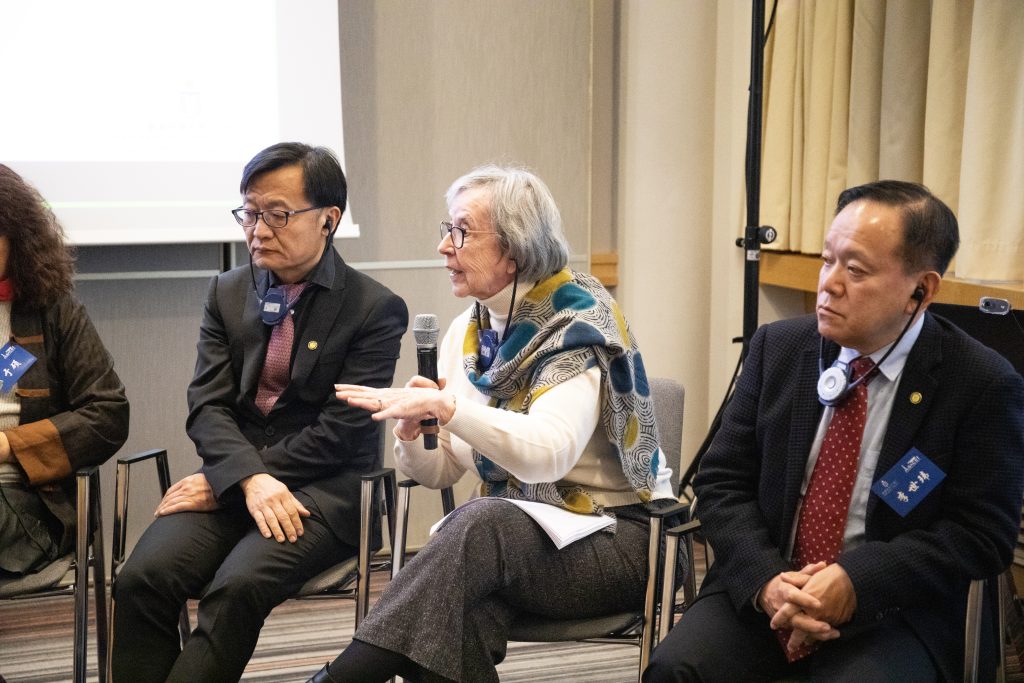
After the seminar, The Hong Kong University of Science and Technology (Guangzhou) held a Global Talent Dialogue (Paris station).
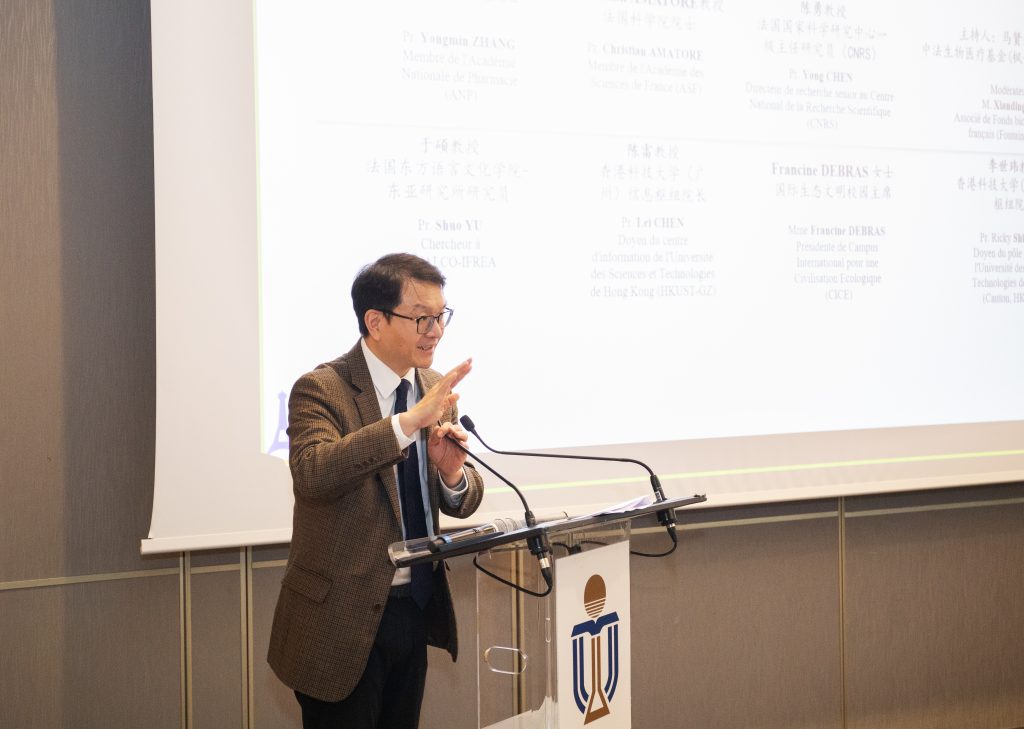
Professor Yang YANG, Associate Vice-President (Teaching & Learning), and Mr. Wenchao ZHANG, Deputy Head of the Talent Services Department, introduced the specific situation of the university, talent policy and related needs to the young talents at the scene, and invited young talents to join HKUST(GZ).


、安特卫普大学(图右)签署合作协议-1024x576.jpg)

